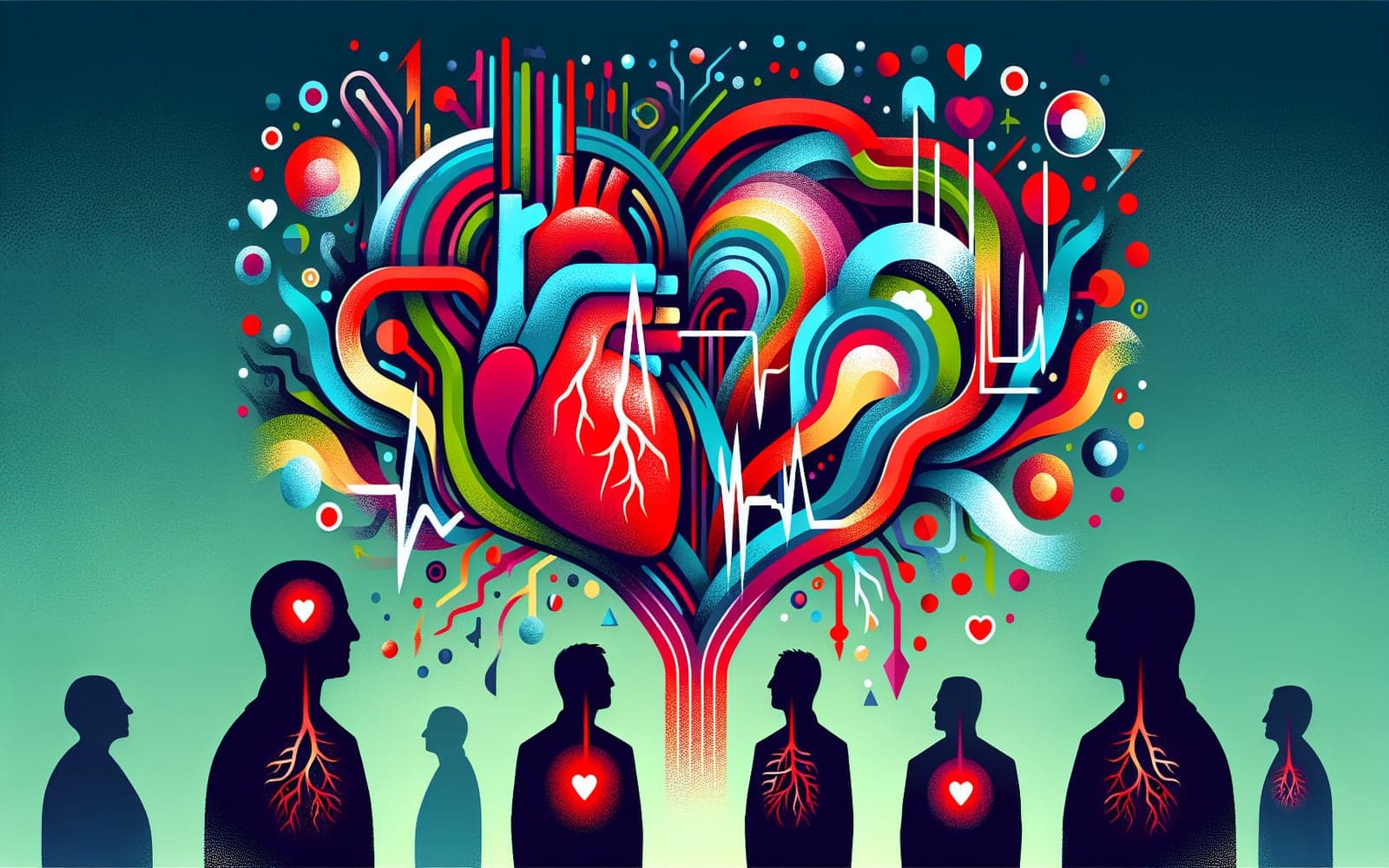Are Your Arteries Silently Hardening? The Hidden Dangers of Arterial Stiffness
Published: Feb 16, 2024
Your arteries could be stiffening without you knowing it, increasing your risk of heart disease. Arterial stiffness is a sneaky condition that can lead to serious cardiovascular problems if left unchecked.
Contents
What is Arterial Stiffness?
Arterial stiffness occurs when your arteries lose their elasticity and become more rigid. This makes it harder for blood to flow through your body, putting extra strain on your heart. Think of it like trying to squeeze water through a stiff garden hose instead of a flexible one - it takes more pressure and effort.
How is it Measured?
Doctors can measure arterial stiffness using a test called pulse wave velocity (PWV). This test measures how quickly blood pressure waves move through your arteries. The faster the waves move, the stiffer your arteries are. It's like timing how fast a ripple moves across a pond - faster ripples mean a stiffer surface.

Why Should You Care?
Research shows that people with high arterial stiffness have a much higher risk of cardiovascular events. One study found that those with stiff arteries were more than twice as likely to have heart attacks, strokes, or die from heart-related causes. It's like having a ticking time bomb in your circulatory system.
Frequently Asked Questions
Yes, arteries naturally stiffen with age, but lifestyle factors can accelerate or slow this process.
Some blood pressure medications may help reduce arterial stiffness.
Ask your doctor about arterial stiffness screening, especially if you have other heart disease risk factors.
Chronic stress may contribute to arterial stiffness, so stress management is important for artery health.
Key Takeaways
Keeping your arteries flexible is crucial for long-term heart health and overall well-being.
Want to learn more about your arterial health? Talk to Doctronic, the AI doctor, about assessing your cardiovascular risk factors and developing a personalized plan for healthier arteries.Related Articles
- The ECG Warning Signs You Can't Ignore: Hidden Heart Risks on Your Electrocardiogram
- The Gut-Heart Connection: How Your Intestines Might Be Putting Your Heart at Risk
- The Air You Breathe: How Pollution Silently Damages Your Heart
- The Genetic Gamble: How Your DNA Might Predict Your Heart Disease Risk
References
Vlachopoulos C, et al. J Am Coll Cardiol 2010; 55:1318-1327.
Cooper LL, et al. Circ Cardiovasc Imaging 2016; 9:e004979.
Always discuss health information with your healthcare provider.

